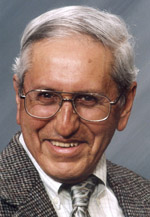We have just gone through another season of giving, some of it easy because it is sharing with friends and family, and some of it hard because we have responded to the cry of the poor near and far.
To give, to empathize, to “get down in the mud with people,” as New Yorker Dr. Kevin Cahill put it in one of my recent columns when speaking about his guiding principle in responding to medical need worldwide, is certainly a most precious human quality.
It is essential to our survival as a species on the planet. We survive and thrive only if we do it together.
Whenever I reflect on giving and receiving and what they mean, I think of the Mayan peasant I met many years ago in Yucatan, Mexico, where I was visiting Maryknoll missioners. He lived with his wife and several children in a one-room mud hut with a dirt floor and thatched roof. They slept in hammocks hung from the walls and had no furniture or appliances.
For some reason, he took a liking to me, and, when the missioner and I said our goodbyes, that humble man offered me a gift: a big bottle of Coca-Cola. In vain I tried to dissuade him, telling him that his children needed it more than I did. But the missioner told me it would be an affront to his dignity to refuse it.
[hotblock]
Often it is as difficult to accept a gift — indeed, perhaps more so — than it is to give it. In late 2013, dignitaries worldwide, including several United States presidents, paid tribute to Nelson Mandela, who died at 95 after liberating his people and leading his country on the path of constructive reconciliation.
His gift, not just to his people but to the world as a whole, was a certain kind of leadership, “unique on the world stage today,” as Thomas L. Friedman, a columnist at The New York Times, put it.
Mandela was lauded for his extraordinary moral authority, for his restraint and generosity, for avoiding vengeance, for his ability to inspire hope in others so they could do the hard work of reconciliation. The yardstick by which he measured every initiative was, “Will this serve the nation?” not just his people.
One can easily imagine what wonders Mandela’s leadership model would work in our fractured legislative halls, state and federal. Certainly, we would find a way to avoid cutting off unemployment benefits to people who cannot find work, to increase rather than reduce food stamps to those in need, to welcome immigrants who have been here a long time and facilitate their integration into society.
Friedman recounts that Dov Seidman, whose company advises CEOs, argues in the book, “How,” that another source of Mandela’s moral authority is that “he trusted his people with the truth” rather than just telling them what they wanted to hear.
“Leaders who trust people with the truth, hard truths, are trusted back,” Seidman wrote. “He accomplished big things by making himself smaller than the moment.”
The question the “developed world” leaders face is the same one I faced when offered a bottle of Coca-Cola by the Mayan peasant: Do I accept the gift of someone deprived in so many ways? In the case of Mandela, it involved a representative of a race long seen as inferior, one who spent the prime years of his life in prison.
The hope a new year brings, of course, is that we will be able to overcome our arrogance and learn from Mandela’s example. We will be poorer if we don’t.
PREVIOUS: Pa.’s abortion rates decline as pro-life support grows
NEXT: Finding big and small ways to end hunger




Share this story